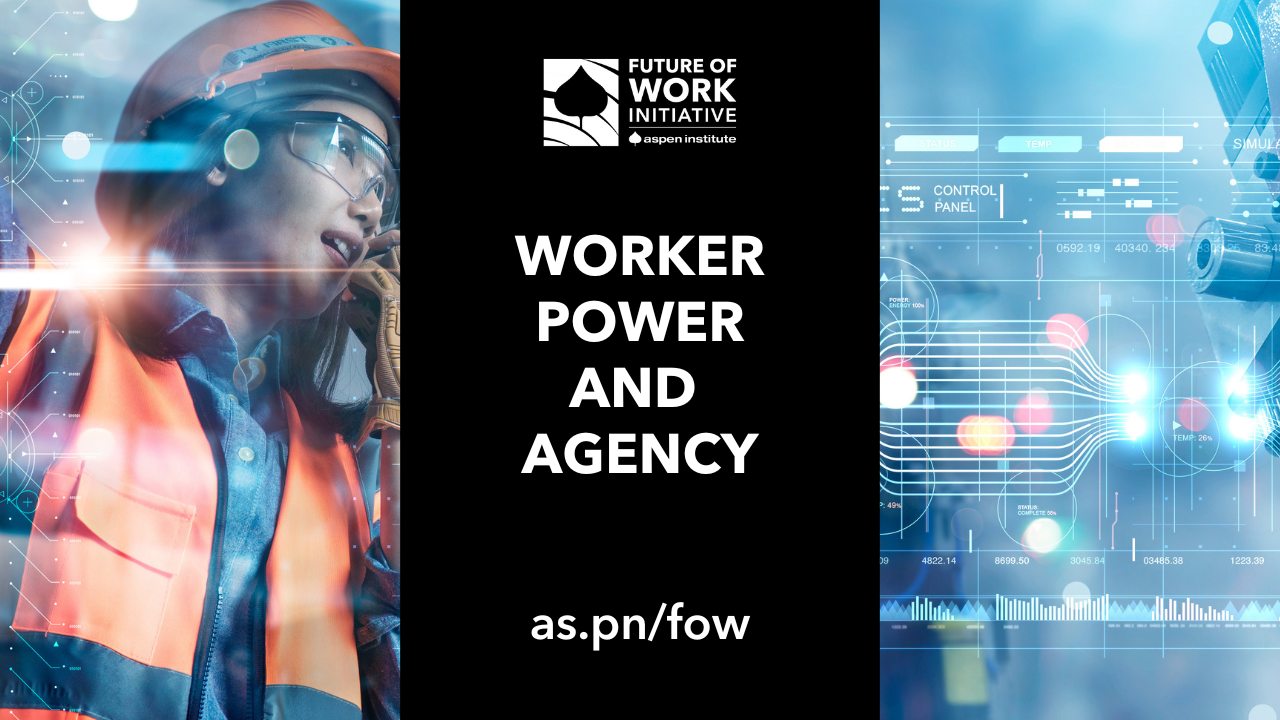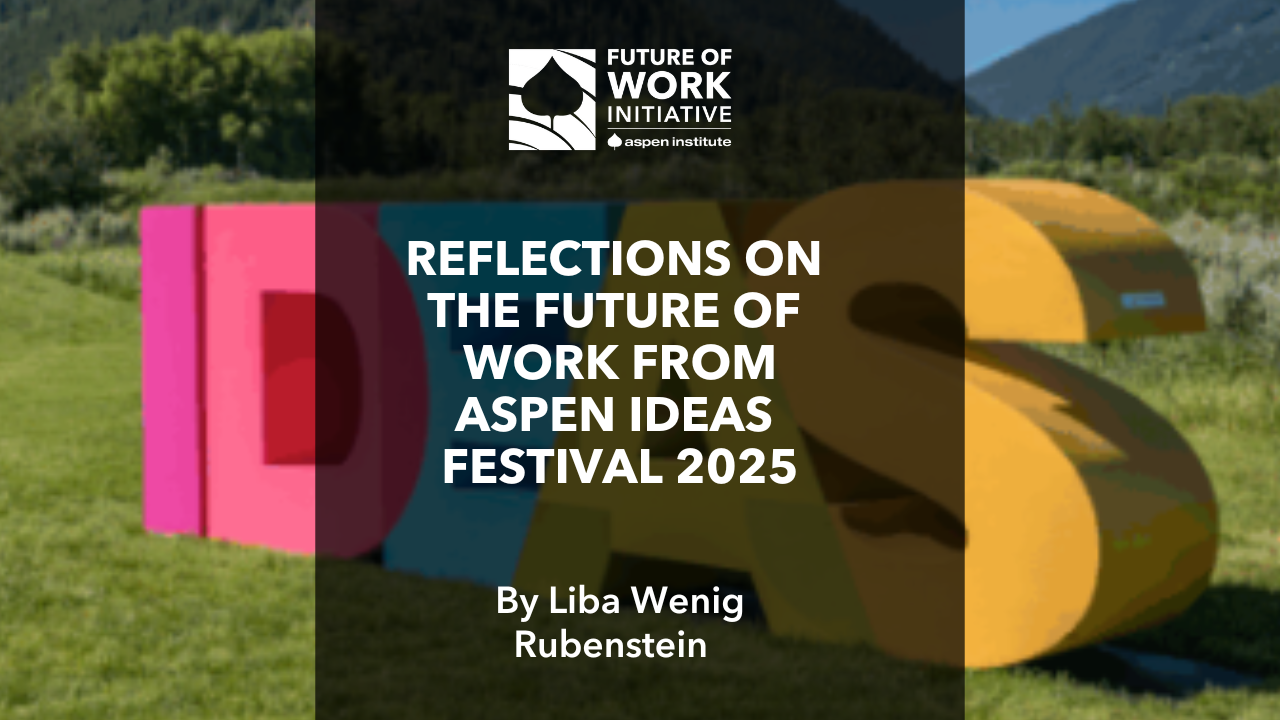Reflections on the Future of Work from Aspen Ideas Festival 2025

Liba Wenig Rubenstein
Director
At this year’s Aspen Ideas Festival, conversations across sessions from AI to religion to capitalism kept circling around a question that’s been keeping me up at night: How do we ensure rapid, disruptive change strengthens rather than erodes American opportunity and democracy? The answer may require us to reimagine work through the lenses of purpose, participation, and power.
On Purpose
Father Greg Boyle illustrated how formerly incarcerated colleagues find a spiritual level of purpose and community through work at Homeboy Industries. Gillian Tett reminded us that the word “company” comes from Italian merchants breaking bread (panis) together (com). Brené Brown argued that corporate America got it all wrong when it decided the characteristics that make us human should be a liability in the workplace.
On Participation
Joshua Bolten and Jim Sorenson asserted that capitalism’s in crisis because it must be more democratic. Many, from Kate Crawford to Charles Scharf, expressed the urgent need to democratize access to and decision-making around AI.
On Power
Tom Wilson argued that if businesses don’t create good jobs they will contend with an aggrieved workforce and lose their license to operate. Fred Krupp referenced de Tocqueville: “What’s special about America is civic organization — that’s where power resides, not in the individual.” And Brené Brown warned: “the most dangerous human emotion is powerlessness.”
Humans are hardwired for connection and meaning. When our work doesn’t provide that — when we don’t feel we have voice in the systems that shape our lives — we suffer both individually and collectively.
In the “Future of Work Is Now” session I hosted with Natalie Foster, Festival Fellows Rachel Korberg, , Sherrell Dorsey, and Ziad Ahmed didn’t make predictions, they shared lived experience. Their generations have grappled with the demise of the American Dream: the promise that education leads to good jobs, and good jobs to security, is broken. Millennials and Zoomers are already forging new pathways through entrepreneurship, boundary-drawing, multi-hyphenate careers, and collective action—and rewriting expectations about the fundamental relationship between work and life along the way.
These conversations reinforced why I’m thrilled to evolve my role at the Aspen Institute to include helming our Future of Work Initiative.
Work forms the backbone of America’s social contract. Our initiative brings together leaders across business and labor to shape a future where work strengthens rather than weakens that contract.
Young leaders aren’t waiting for permission to reimagine work. Indeed, the future of work is being written now—in choices about power, policy, and partnership. I’m grateful for the opportunity to collaborate with leaders playing a constructive role in writing it.
Session Photographs
(Natalie Foster, Liba Wenig Rubenstein, Festival Fellows Rachel Korberg, Sherrell Dorsey, and Ziad Ahmed)
About the Future of Work Initiative
The Aspen Institute’s Future of Work Initiative, part of the Economic Opportunities Program, empowers and equips leaders to innovate workplace structures, policies, and practices that renew rather than erode America’s social contract.
Join Our Mailing List
To receive occasional emails about our work — including new publications, commentary, events, fellowships, and more — join our mailing list.
Connect on Social Media
For news and updates every day, connect with us on the social media platform of your choice.









